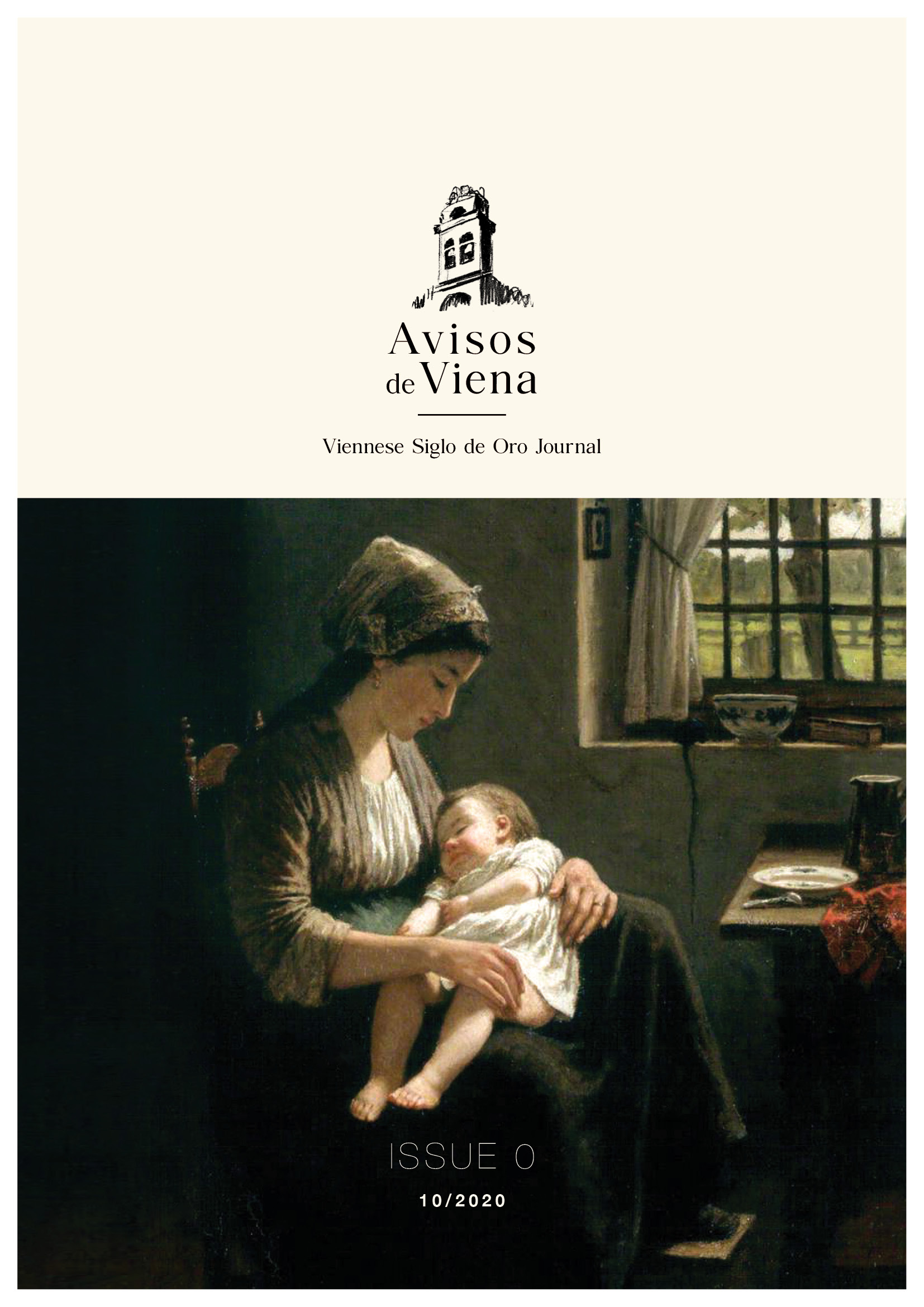Klang und Affekt im spanischen Barocktheater: Eco y Narciso
DOI:
https://doi.org/10.25365/adv.2020.1.6171Keywords:
Barocktheater, Barock, Theater, Calderón, Echo, Narziss, Siglo de Oro, Pedro Calderón de la Barca, comedia mitológica Eco y NarcisoAbstract
The story of Narcissus, consumed by his own image, is introduced by the blind Tiresias in Ovid's narrative. Tiresias, punished with blindness by the goddess Juno, confirms Jupiter's opinion that women experience greater sexual desire, drawing from his experience as both a man and a woman. Tiresias prophesies to the newborn Narcissus that he will live to old age if he does not recognize himself. Shortly thereafter, we accompany Narcissus on a stroll through the forest and encounter the story of Echo. Echo, cursed by Juno to only repeat the last words spoken to her, had entertained Juno with lengthy tales to allow time for nymphs to escape Jupiter's escapades. The narrative of Echo and Narcissus is framed by two main motifs: the conflict over emotions and desires, and the resulting punishments of sensory loss, both blindness and loss of articulation. Hearing and sight are heavily impaired within this emotional constellation.
References
Anzieu, Didier. Das Haut-Ich. Suhrkamp, 1991
Calderón de la Barca, Pedro. Eco y Narciso. Editado por Sebastian Neumeister. Cuarta parte de Comedias, editor general Sebastian Neumeister, Biblioteca Castro, 2010,pp. 129–26.
Ovid. Metamorphoses, ed. Franz Bömer, Stuttgart, Teubner, 1969.
Poppenberg, Gerhard, Psique y alegoría. Estudios del auto sacramental español desde sus comienzos hasta Calderón, Kassel, Reichenberger, 2009.
Downloads
Published
How to Cite
Issue
Section
License
Copyright (c) 2020 Simon Kroll

This work is licensed under a Creative Commons Attribution 4.0 International License.
© Open Access, CC BY 4.0












